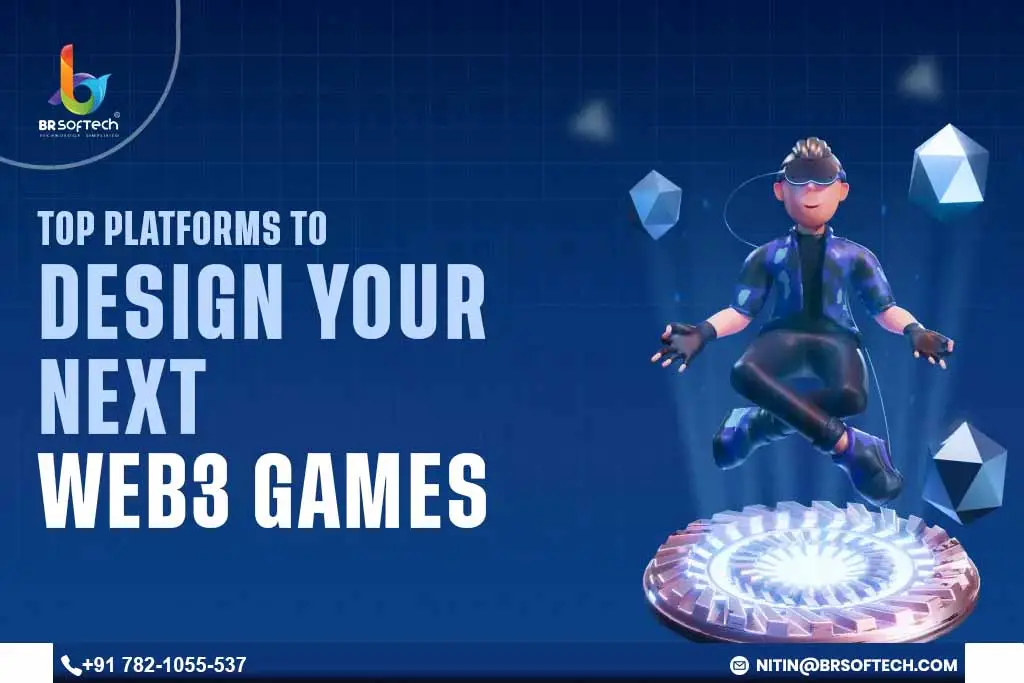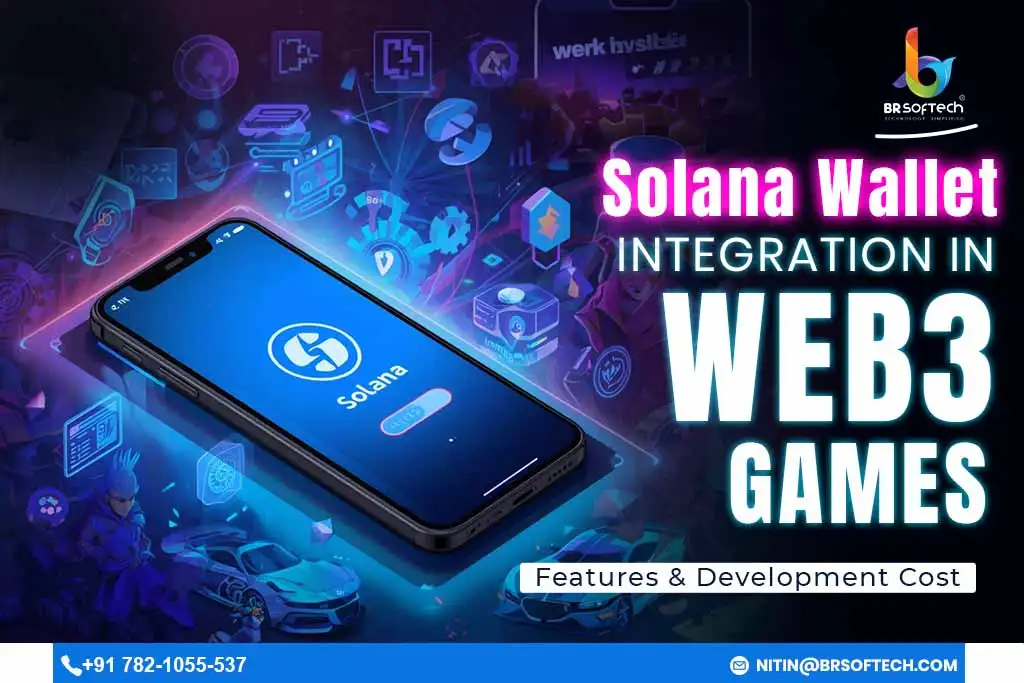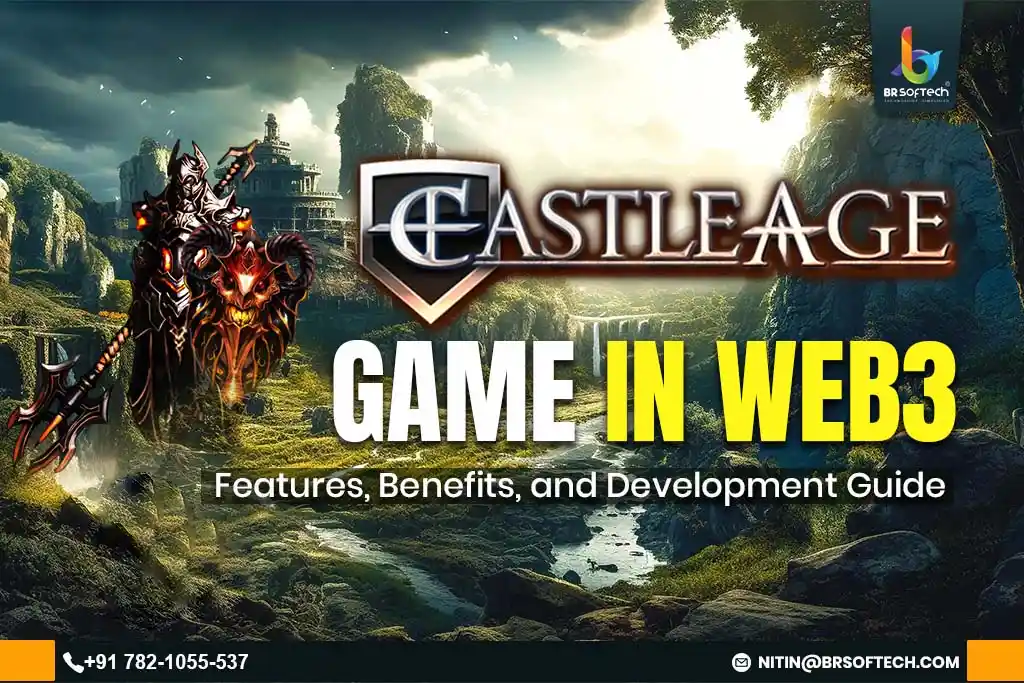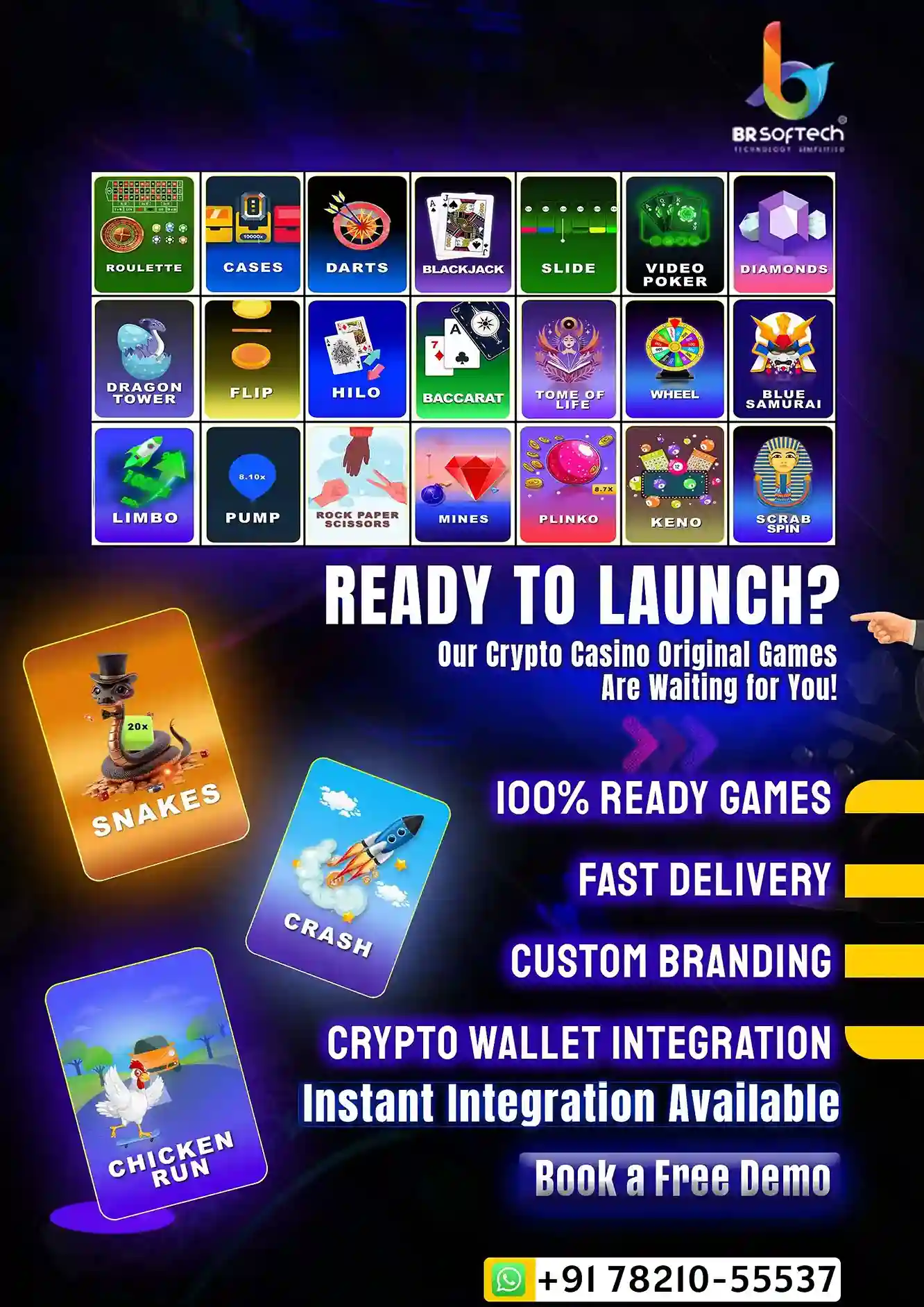Web3 gaming is redefining how we think about player ownership and game economics. As someone who’s helped gaming operators transition from traditional to decentralized ecosystems, I have seen how Web3 game design brings both opportunity and complexity.
Unlike traditional models, blockchain-based games allow players to truly own in-game assets, trade them across decentralized game platforms, and earn real value. But with dozens of Web3 game development tools and Web3 game engines available, knowing where to start can be overwhelming.
In this guide, I will break down the top platforms to design a Web3 game, drawing from hands-on experience in blockchain game design and live projects. Whether you are looking to build Web3 games from scratch or optimize your next NFT game development project, this guide will help you make informed, profitable decisions.
What is Web3 Game Design?
Web3 game design is the process of creating decentralized games that run on blockchain technology, where players truly own their digital assets and interact through smart contracts instead of centralized servers.
Unlike traditional games controlled by a single company, Web3 games are powered by decentralized networks that ensure transparency, fairness, and interoperability. In essence, Web3 game design focuses on three pillars:
- Ownership: Players hold in-game assets as tokens or NFTs stored securely on the blockchain.
- Interoperability: Items and currencies can be used across multiple games and ecosystems
- Decentralization: Game data and mechanics are managed through smart contracts, reducing the control of a single authority.
If you are someone who is transitioning from conventional game development, our guide on Traditional vs Decentralized Games explores how these worlds differ in structure, revenue model, and player experience.
Top Benefits of Web3 Game Design for Developers and Operators
Designing games for the Web3 ecosystem isn’t just about following a trend; it is about unlocking a new level of creative and financial freedom for both developers and gaming operators. Here’s how Web3 game design reshapes how value flows within the gaming ecosystem.
True Digital Ownership
In traditional games, players spend but never own. Every item, skin, or currency can exist as a verifiable token on the blockchain. This sense of ownership keeps players engaged longer and encourages community participation.
Transparent and Fair Ecosystems
Because Web3 games run on smart contracts, every transaction and gameplay rule is visible and immutable. This transparency builds trust, a key differentiator for gaming platforms targeting global audiences.
New Monetization Opportunities
Operators can earn through token sales, secondary markets, and royalties. Instead of one-time purchases, Web3 game development platforms allow ongoing revenue from every player-to-player transaction.
Global Market Reach
Web3 removes geographical and payment barriers. With decentralized and top crypto wallets, your game can attract global players without worrying about traditional payment gateways.
Top Web3 Game Development Platforms
Choosing the right platform for Web3 game design can determine how scalable, secure, and profitable your game becomes. The best platforms simplify blockchain integration, support multiple chains, and give developers access to ready-made Web3 game development tools.
Here are some of the top platforms to design and build Web3 games in 2025:
Unity + Moralis SDK
- Best for: Cross-platform blockchain games
- Why it stands out: Fast Web3 integration with minimal coding
Unity remains one of the most popular engines for Web3 developers thanks to the Moralis Web3 SDK, which lets you integrate wallet authentication, NFT functionality, and real-time blockchain data directly into your Unity projects. It is perfect for teams already familiar with traditional game development who want to transition into Web3 smoothly.
Unreal Engine + ChainSafe Gaming SDK
- Best for: AAA Web3 games and metaverse projects
- Why it stands out: Powerful rendering and reliable blockchain connectivity
For studios focused on high-end visuals or immersive gameplay, Unreal Engine, paired with ChainSafe’s Web3 Gaming SDK, delivers the power and realism of AAA gaming with decentralized logic. It supports major blockchains and simplifies on-chain asset management.
Immutable X
- Best for: NFT-heavy Web3 games
- Why it stands out: Zero gas fees and seamless Ethereum compatibility
Immutable X is a layer-2 scaling platform built on Ethereum, designed specifically for NFT and gaming transactions. It enables gas-free minting, instant trading, and carbon-neutral infrastructure, making it ideal for developers who value sustainability and user affordability.
Enjin
- Best for: Cross-chain in-game economies
- Why it stands out: Developer-friendly and fully integrated tool suite.
Enjin offers a full ecosystem for creating, managing, and integrating blockchain assets into your games. It includes tools like the Enjin Wallet, Marketplace, and SDK, allowing developers to tokenize in-game items and give players real ownership without a complex blockchain setup.
BNB Chain
- Best for: High-traffic decentralized gaming platforms
- Why it stands out: Scalable, low-cost blockchain ideal for global reach
BNB Chain is becoming a go-to choice for Web3 game studios thanks to its speed, low fees, and massive user base. With easy smart contract deployment and compatibility with major wallets, it provides the perfect backbone for large-scale Web3 game development.
Solana
- Best for: Real-time multiplayer and play-to-earn games
- Why it stands out: Lightning-fast transactions and an active dev community
Known for its ultra-fast transaction speeds, Solana is a strong option for developers who want smooth, real-time gameplay in decentralized environments. Its low latency and developer-friendly ecosystem make it great for both casual and competitive Web3 games.
If you are still unsure where to begin, partnering with an experienced Web3 game development company can help you strategize your gaming build.
Essential Tools for Web3 Game Developers
Designing a successful Web3 game requires more than just creativity; it also demands the right tech stack. Below are the must-have tools every developer should explore before building their next Web3 game design project:
Moralis
- Use Case: Simplifies backend operations so developers can focus on gameplay and UX
Moralis provides a complete Web3 backend for authentication, user profiles, NFT management, and database syncing. It saves weeks of setup time and supports multiple chains, including Ethereum, Polygon, and BNB Chain.
Thirdweb
- Use Case: Ideal for indie devs wanting to build fast and scale quickly
Thirdweb is one of the most developer-friendly platforms for quickly deploying smart contracts without deep blockchain knowledge. It includes pre-built contract templates for NFTs, tokens, and marketplaces.
Chainlink
- Use Case: Enables real-time and transparent gameplay logic powered by external data.
When you need real-world data inside your game (like price feeds or player stats), Chainlink is the standard oracle solution. It securely connects smart contracts to external APIs, making your game more dynamic and trustworthy.
Hardhat
- Use Case: Crucial for testing and maintaining blockchain stability during development.
Hardhat is a popular Ethereum development environment that allows developers to test, debug, and deploy smart contracts locally. It is essential for building secure, production-ready blockchain logic before mainnet deployment.
IPFS (InterPlanetary File System)
- Use Case: Keeps your Web3 game censorship-resistant and fully decentralized
IPFS is a decentralized storage system used to host in-game assets, metadata, and NFT files. Instead of relying on centralized servers, IPFS ensures that game data remains permanently accessible and tamper-proof.
Wallet Connect
- Use Case: Essential for enabling seamless wallet integration in blockchain games.
Wallet Connect is the bridge between your Web3 game and crypto wallets like MetaMask. It allows players to log in, transact, and manage digital assets securely from any device.
Alchemy
- Use Case: Ensures stability, scalability, and performance at enterprise levels.
Alchemy is a powerful blockchain infrastructure platform offering developer APIs, node services, and analytics for Web3 apps. It provides reliable network access for large-scale games and dApps.
Best Practices for Building Scalable Web3 Games
Building a successful Web3 game is not just about flashy graphics or blockchain integration; it is about creating a platform that can handle growth, maintain security, and provide a seamless player experience. Here are the key best practices to follow when designing scalable Web3 games:
Choose the Right Blockchain
Not all blockchains are created equal. Consider transaction speed, gas fees, and ecosystem support when selecting a network. Platforms like Solana, BNB Chain, or Immutable X are popular for high-traffic games due to low latency and low transaction costs.
Always test your smart contracts on testnets before committing to mainnet deployment.
Also Read: How to Choose the Right Blockchain Platform for Your Game?
Optimize Smart Contract Design
Efficient smart contracts reduce on-chain computation, lowering fees and improving game performance. Modular contract design also makes it easier to update or expand game features without full redeployment.
Use audited libraries and frameworks like OpenZeppelin to minimize vulnerabilities.
Integrate Off-Chain Solutions
While blockchain ensures decentralization, storing all game logic on-chain is impractical for large games. Use off-chain databases for non-essential operations while keeping critical assets and transactions on-chain. Platforms like Moralis or Alchemy can bridge on-chain and off-chain data efficiently.
Plan for Cross-Chain Compatibility
Players today expect interoperability. Designing your game with multiple chains in mind allows assets to move freely, expanding your potential audience and revenue streams. Consider token bridges and cross-chain SDKs for asset transfers.
Prioritize Player Experience
Scalable Web3 games are still games first. Ensure wallet integration, asset trading, and token mechanics are intuitive. Poor UX can turn off even the most enthusiastic blockchain gamers. It is a good practice to test extensively with a small beta community before full launch.
Implement Analytics and Monitoring
Track in-game transactions, token usage, and smart contract interactions to detect bottlenecks or anomalies. Analytics tools allow you to proactively optimize performance and user engagement. Integrate real-time monitoring dashboards to handle spikes in traffic efficiently.
Why Choose BR Softech for Web3 Game Design?
When it comes to Web3 game design and development, expertise, reliability, and innovation are non-negotiable. At BR Softech, we combine deep industry knowledge with hands-on experience to help gaming operators build Web3 games that are secure, scalable, and engaging. Here’s why operators and studios around the globe trust us:
Final Words
The era of Web3 game design is here, and the opportunities for gaming operators and developers are enormous. From truly player-owned assets to decentralized economies and cross-chain scalability, the potential to innovate and engage players is unprecedented. However, building successful Web3 games requires expertise, careful bottlenecks, careful planning, and the right tools.
For operators and studios looking to launch games efficiently while maintaining technical excellence, leveraging expert blockchain game development services can streamline your path from concept to market-ready product.
Frequently Asked Questions(FAQs)
Q1. What is Web3 game design? Ans. Web3 game design refers to creating decentralized games where players truly own their in-game assets and interact through blockchain-based smart contracts instead of centralized servers. It combines traditional game mechanics with tokenized economies and player-driven governance.
Q2. Which platforms are best for building Web3 games? Ans. Top platforms to design Web3 games include Unity + Moralis SDK, Unreal Engine + ChainSafe, Immutable X, Enjin, BNB Chain, and Solana. Each caters to different needs, from NFT-heavy titles to high-end AAA gaming experiences.
Q3. What tools do developers need for Web3 games? Ans. Essential tools include Moralis, Thirdweb, Chainlink, Hardhat, IPFS, WalletConnect, and Alchemy. These help with blockchain integration, smart contracts, asset management, and secure wallet connections.
Q4. How can I make my Web3 games scalable? Ans. Best practices for scalability include choosing the right blockchain, optimizing smart contracts, integrating off-chain solutions, planning for cross-chain compatibility, prioritizing user experience, and implementing real-time analytics and monitoring.
Q5. Why should gaming operators invest in Web3 games? Ans. Web3 games create new revenue streams through tokenized economies, foster long-term player engagement via ownership, and open global markets without traditional payment barriers. They also position operators as innovators in the rapidly growing decentralized gaming ecosystem.









